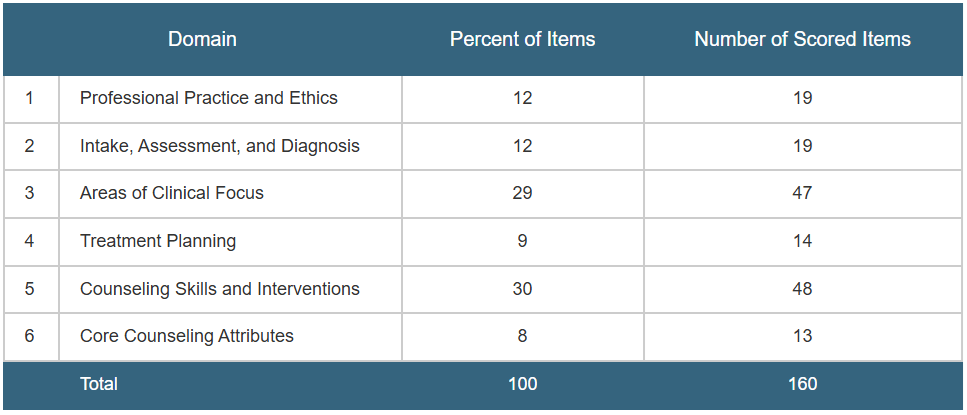Last Updated on April 4, 2025
National Counselor Exam Practice Test 2025 Official Study Guide (PDF) You can try our free National Counselor Exam (NCE) review questions and answers free. Check our latest chapter-wise NCE Exam Prep Practice Test 2024.
By familiarizing yourself with the examination format, you’ll be better prepared for the NCE and will have a better understanding of what to expect on test day. Practice time management and develop a solid foundation in the eight content domains to increase your chances of success.
National Counselor Exam Practice Test 2025
First, let’s discuss the NCE. This exam is designed to evaluate your knowledge and skills in counseling. The questions cover various topics, from counseling theories and techniques to assessment and diagnosis. It’s a multiple-choice test with around 200 questions, so it’s essential to be prepared and stay focused.
National Counselor Exam
The National Counselor Exam (NCE) is a standardized examination designed to assess your knowledge and skills related to counseling. Here’s an overview of the examination format to help you better understand what to expect when you take the test:
| Test Name | National Counselor Exam (NCE) |
| Administered by | National Board for Certified Counselors |
| Total Questions | 200 |
| Question Type | multiple-choice |
| Time Limit | 3.45 Hours |
| Testing Mode | Online CBT |
| Testing Site | Pearson VUE |
| Official Website | nbcc.org/exams/nce |
Number of Questions: The NCE consists of approximately 200 multiple-choice questions. These questions are designed to cover the eight content domains or “Work Behaviors” that reflect the knowledge and skills required for professional counseling practice.
Exam Duration: You will have about 3 hours and 45 minutes to complete the exam. It’s essential to manage your time wisely to ensure you have an opportunity to read and answer all questions.
Content Domains: The questions on the NCE are distributed across the following eight content domains:
- Professional Practice and Ethics
- Intake, Assessment, and Diagnosis
- Areas of Clinical Focus
- Treatment Planning
- Counseling Skills and Interventions
- Core Counseling Attributes
Question Format: The multiple-choice questions on the NCE can vary in format. Some questions may require identifying concepts or theories, while others may ask you to apply your knowledge to a case study or real-life scenario.
Scoring: The NCE uses a scaled scoring system, with a passing score typically set at around 90-100 out of a possible 160, depending on the specific version of the exam. It’s important to note that the scoring system may be adjusted based on the difficulty of the questions or other factors, so it’s best to aim for a strong understanding of the content domains rather than focusing solely on achieving a specific score.
Exam Administration: The NCE is usually administered by the National Board for Certified Counselors (NBCC) or the relevant state licensure board, depending on your location. The exam is typically offered at computer-based testing centers, with scheduled testing dates available throughout the year.
The weight for each domain
Alright, let’s break down the content outline for the National Counselor Exam (NCE). The exam assesses your knowledge and skills in eight key areas, known as the “Work Behaviors” or content domains. Here’s an overview of these domains, along with some topics you can expect within each area:
Requirements and Eligibility
The National Counselor Exam (NCE) requirements and eligibility can vary depending on your location, as each state or jurisdiction has its own specific regulations. However, there are some general requirements that most candidates will need to meet. Here’s an overview of those standard requirements:
Those wishing to sit for the NCE must have completed a graduate program in counseling or a related field at a regionally accredited institution and must have been conferred a graduate degree by that institution. In order to take the NCE, an official, sealed transcript confirming your degree attainment must be sent with your NCE registration form.
Resources and Study Guide PDF
- Download the handbook [PDF].
- State licensure candidate handbook [PDF].
- Study guides are available to help you prepare for the NCE.
- Exam Home Page: https://www.nbcc.org/exams/nce

